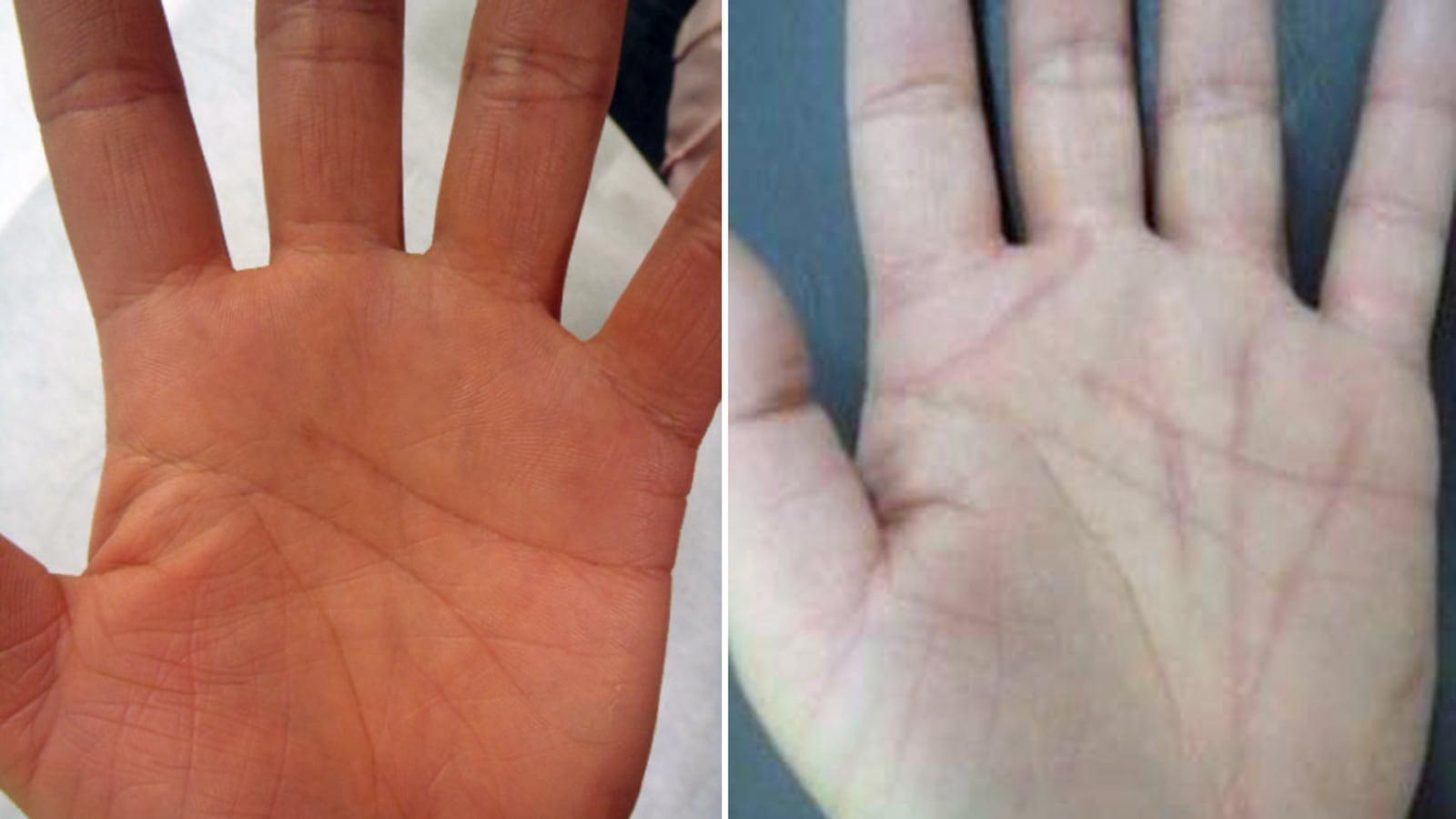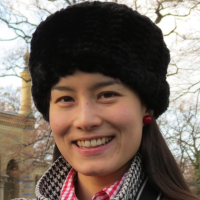In Japan, where palm reading remains one of the most popular means of fortune-telling, some people have figured out a way to change their fate. It’s a simple idea: change your palm, change the reading, and change your future. All you need is a competent plastic surgeon with an electric scalpel who has a basic knowledge of palmistry. Or you can draw the lines on your hand with a marker and let him work the magic you want.

Missing a marriage line? That can be fixed. Wedding bells may ring.
Need some good fortune? Add a money-luck line and you might win the lottery or be promoted to vice president in your firm. For the smart shopper—one willing to undergo palm plastic surgery—the future isn’t what it used to be.
“Doctor, I want you to change my fate. Please change my palm.”
Even in Japan, where odd surgery requests are not unknown—like the man who had his penis removed and served it as a special dinner—Takaaki Matsuoka, a plastic surgeon at the Shonan Beauty Clinic’s Shinjuku branch, was taken aback. It was January 2011, and a female patient wanted her palm reformatted to bring her better luck. Matsuoka wasn’t sure he could do it.
He scoured medical journals until he found examples of such surgery being done in Korea, studied the methods, then confirmed with the patient what she wanted done, and performed the surgery for ¥100,00 ($1,000). It went well.
The surgery had to be performed with an electric scalpel—which burns the flesh, creating the scent of burnt hot dogs, and leaves a semipermanent scar.
“If you try to create a palm line with a laser, it heals, and it won’t leave a clear mark. You have to use the electric scalpel and make a shaky incision on purpose, because palm lines are never completely straight. If you don’t burn the skin and just use a plain scalpel, the lines don’t form. It’s not a difficult surgery, but it has to be done right.”
From January 2011 to May 2013, 37 palm plastic surgeries have been performed at the Shonan Beauty Clinic alone, 20 of them by Matsuoka. Several other clinics in Japan offer the surgery, but almost none of them advertise it. Word-of-mouth is more than enough. Shonan Beauty Clinic did advertise the service briefly, but couldn’t keep up with the demand.
This year Dr. Matsuoka has already performed the surgery on five patients and the clinic was in consultation with three others last month. The surgery usually takes 10 to 15 minutes and includes anywhere between 5 and 10 lines on the palm. The patient is free to draw the lines they wish to have, but of course Matsuoka pays attention to make sure the ones they have in mind are the proper harbingers of good fortune. It takes about one month for the wounds to heal and form palm lines, during which time the new lines need to remain bandaged.
The majority of the patients are men and women who are in their 30s and have a predilection for fortune-telling.
Men want money, women want men: the favorite palm lines
Matsuoka didn’t know anything about palmistry—the art of reading fortunes from palms—when he began doing the surgery. Over time he realized that to do the job better, he needed to know the fundamentals of the ancient divining art.
Listening to Matsuoka enthusiastically explain the meanings of the palm lines like the highly desired tripartite emperor’s line (覇王線)makes you realize he could probably have a second career practicing palmistry.
“Well, if you’re a single guy trying to pick up a date, knowing palm reading is probably good. It’s a great excuse to hold a lovely woman’s hands,” he says, laughing.
Men usually wish to change their business related success lines, such as the fate line(運命線), the money-luck line (金運線), and the financial line (財務線).
Matsuoka explains, “The money-luck line is for making profits. And the financial line is the one that allows you to save what you make. It’s good to have both. Because sometimes people make a lot of money, but they quickly lose it as well. A strong fate line helps ensure you make money and keep it. These three lines, when they come together just right, create the emperor’s line. Most men want this.”
He notes that the Japanese celebrity, comedian, and actor Takaaki Ishibashi (co-star of the Hollywood classic Major League II) has a strong emperor’s line.
Women often want to change their marriage line.
“If you don’t have the marriage line, it means you will most likely not get married. So the job of the doctor is to create a marriage line. Sometimes the marriage line is there, but it came too early and the woman missed her chance. So we add another one.”
One of his patients was 30 when she came for the surgery. Her wedding line was low on her hand, indicating she should have gotten married in her 20s, so at her request, the doctor added another marriage line to her palm. He put it high enough so that she’d be married within one to three years after the surgery—if all went well.
Not all women want marriage lines; some just want better romance lines. And that includes married women as well.
Does it work?
Matsuoka isn’t sure how effective the surgery really is and hasn’t done an analysis. He believes there may be a placebo effect.
“If people think they’ll be lucky, sometimes they become lucky. And it’s not like the palm lines are really written in stone—they’re basically wrinkles. They do change with time. Even the way you use your hands can change the lines. Some palmisters will even suggest that their clients draw the lines on their hands to change their luck. And this was before palm plastic surgery existed. However, anecdotally I’ve had some success.”
The woman with the early wedding line wrote to the doctor that she got married soon after he had performed the operation. Two male patients wrote to him that they had won the lottery after the surgery. His luckiest patient collected more than $30,000 (3 million yen).
“Of course, I can’t say there is a cause-and-effect relationship, but if there was, the guy who won the lottery made an excellent investment: a 2.9 million–yen ($29,000) profit. Maybe changing your palm won’t change your fate, but if you have that much determination to try to change it—and are willing to endure a little pain for that chance—maybe you can change your life.”
At the end of the interview, as if to prove his point, Matsuoka looked at my palm and added, “Yes, your palm says you have good luck. You can make money, but you’re terrible at saving it.” He was stunningly accurate ... or he’d seen my bank balance somewhere.
Looking at Ms. Stucky’s palm, he added, “You’re doing the perfect job for you. It’s one you’re suited for and like a lot.”
I would have asked him to read my palm even more, but I had a feeling that if he had, I’d have ended up becoming patient No. 38.
For right now, I’ll stick with the marker.







